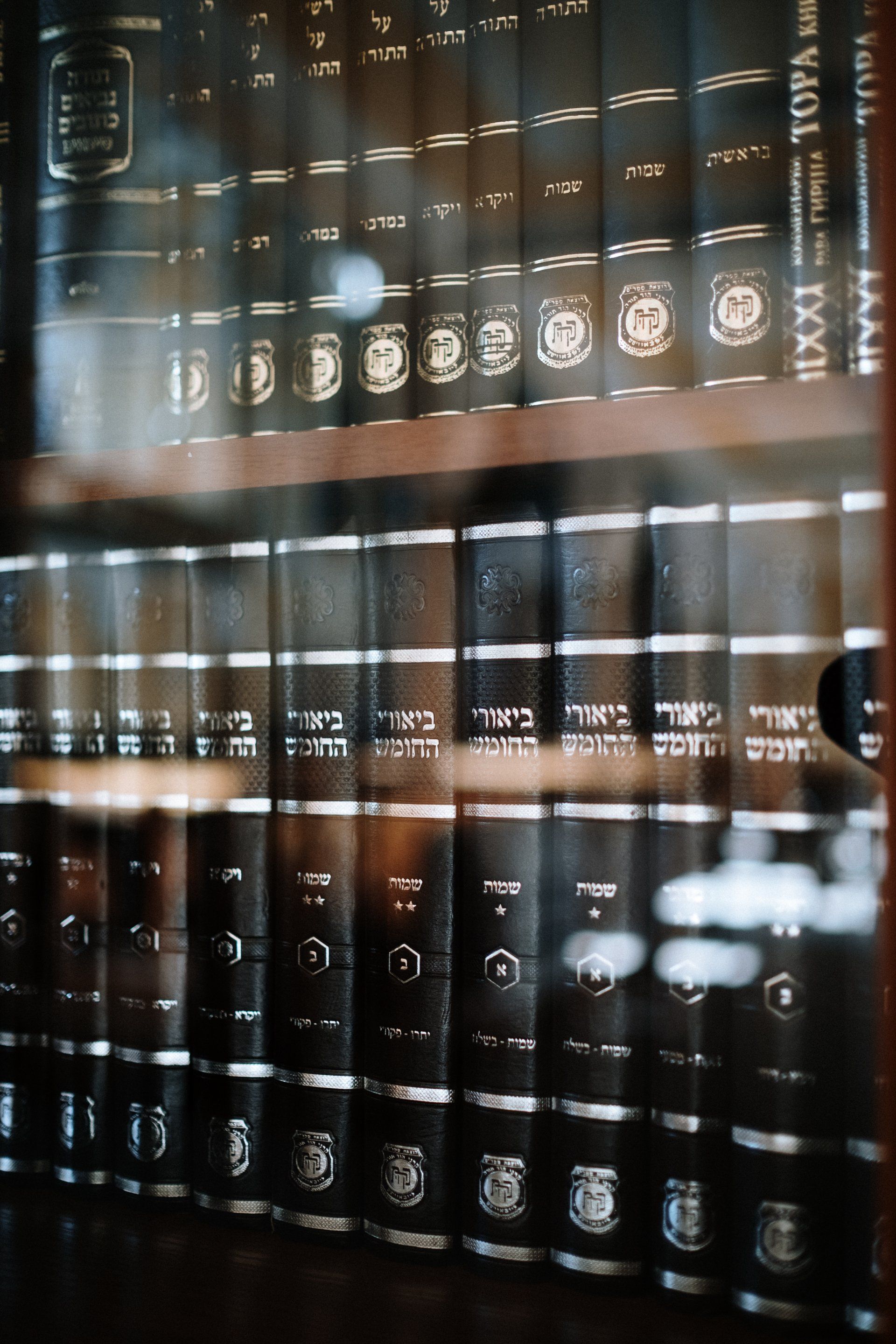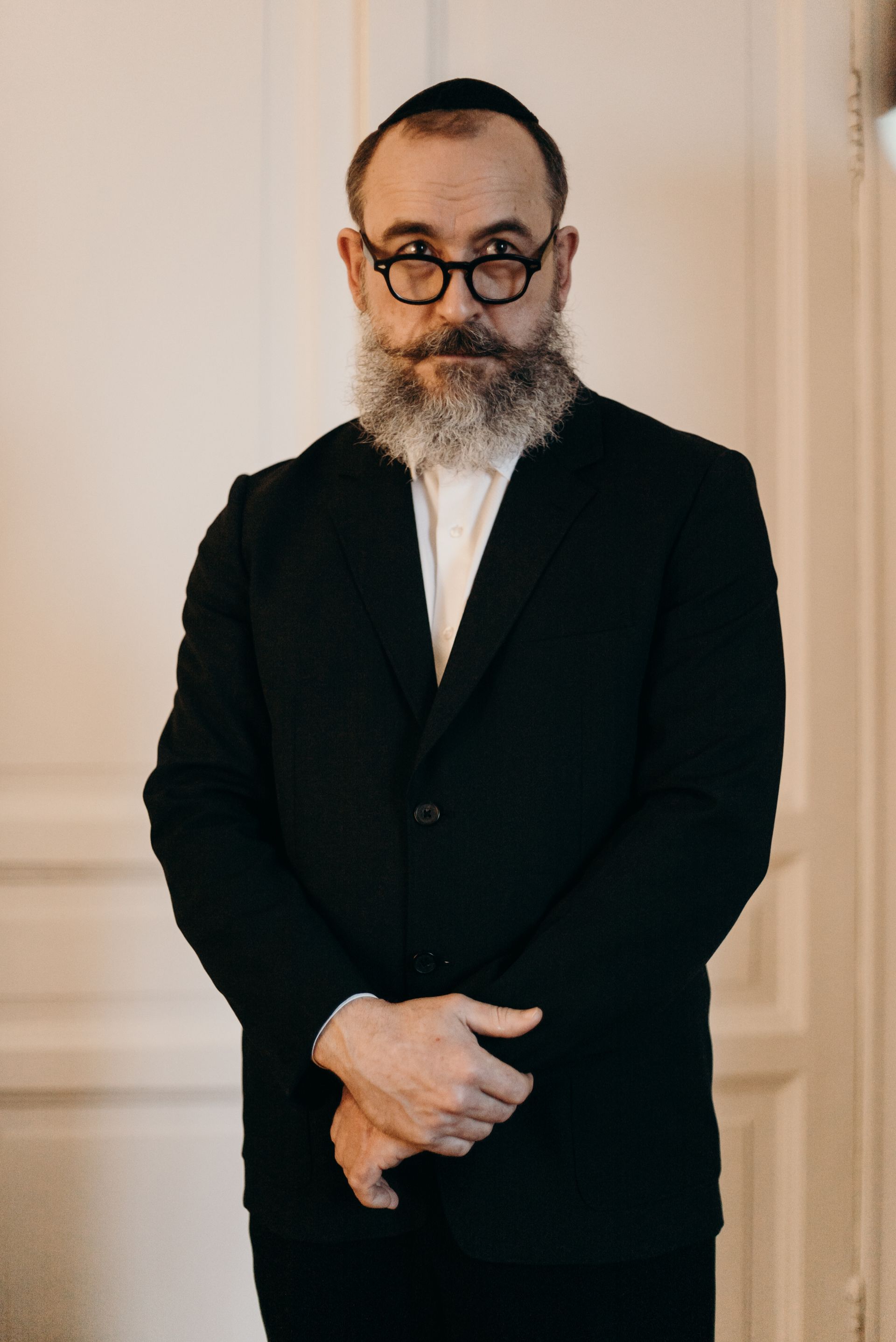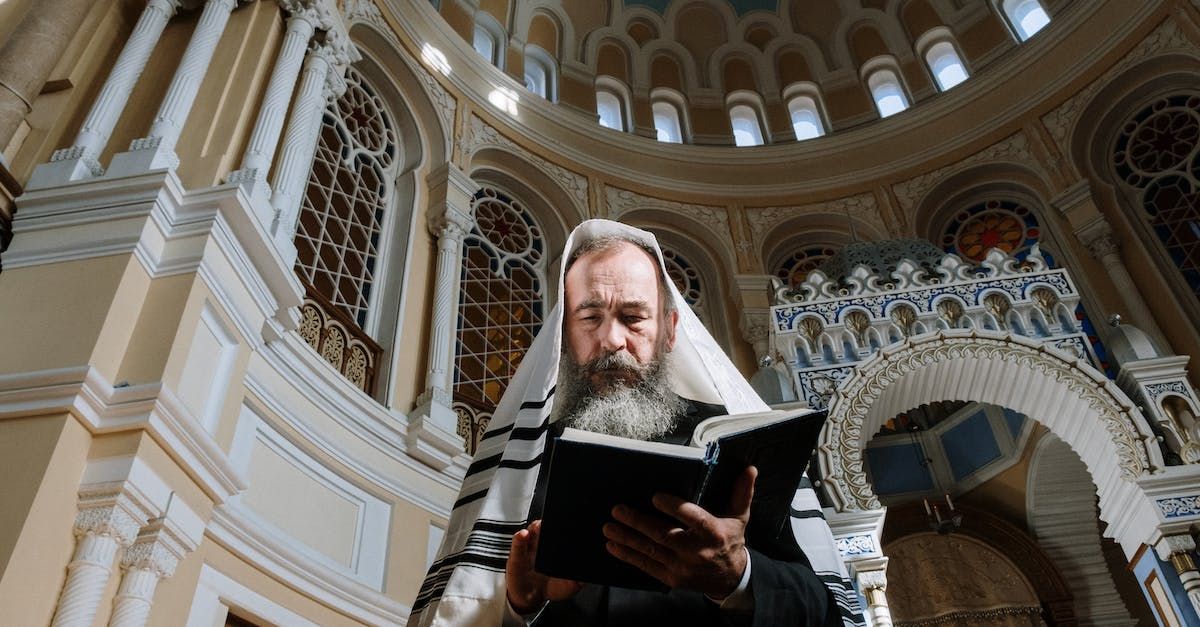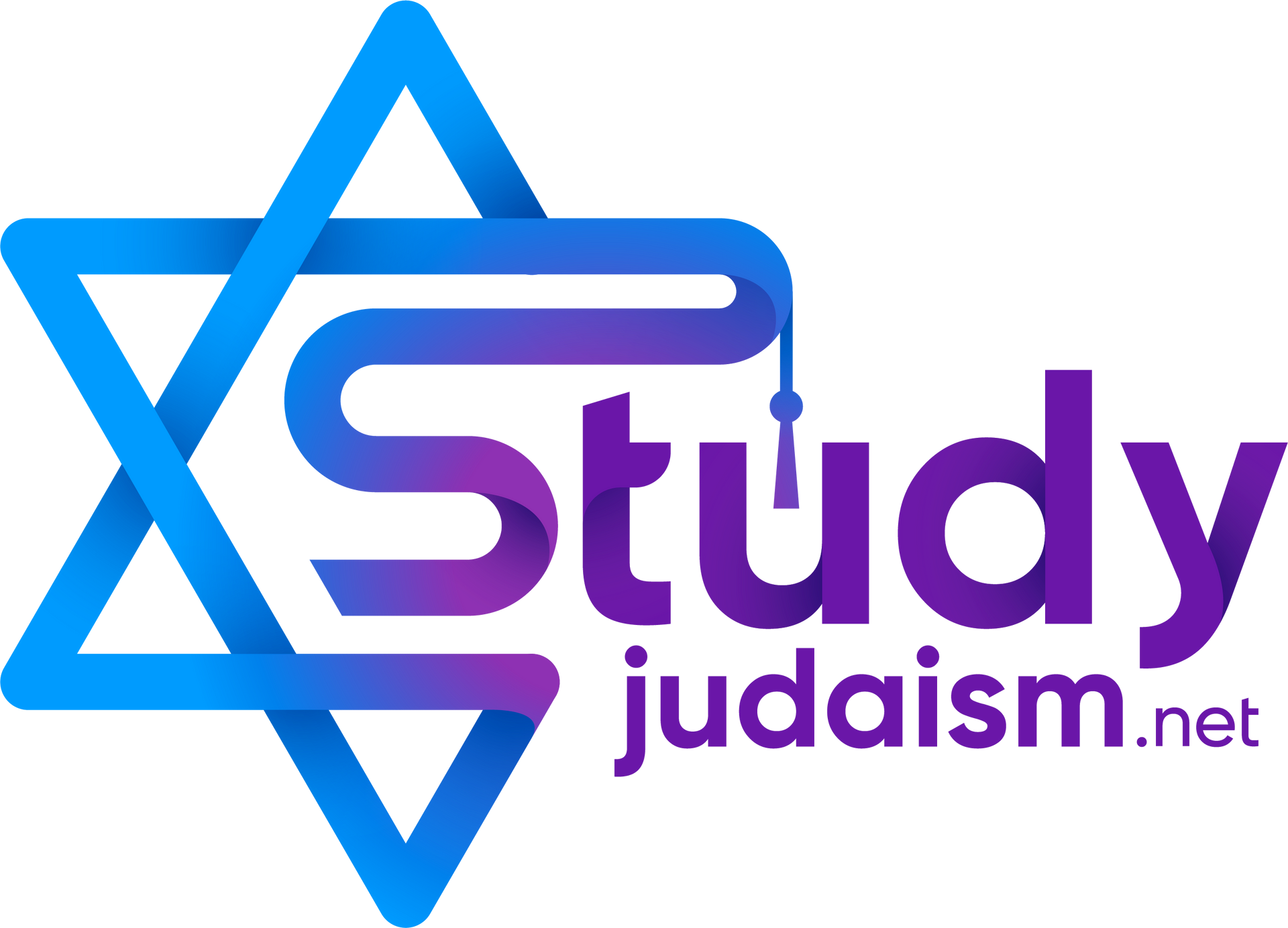וַאֲהַבְתֶּ֖ם אֶת־הַגֵּ֑ר
"You too, must love the convert" - Deuteronomy 10:19
Conversion To Judaism
Traditionally, Judaism has held converts in extraordinarily high regard, lauding their dedication to the Jewish people and it's faith.
The Torah conveys the commandment to love in only three instances: “Love your neighbor like yourself” (Leviticus 19:18), “Love the Lord your God” (Deuteronomy 6:5) and “Love the convert” (Deuteronomy 10:19).
The imperative to be sensitive to and love converts appears no fewer than 36 times throughout the Torah, making it one of the most often repeated commandments.
Before beginning the conversion process, it is important to think about what you are getting into very carefully.
The Torah teaches that you can become a righteous gentile by keeping only seven laws. Therefore, if you are not completely committed to becoming Jewish, it is preferable to remain a righteous gentile, rather than converting without being able to fulfill the obligations of a Jew one hundred percent.
Is Conversion
to Judaism
right for you?
People convert to Judaism for different reasons but the goal is always the same - Join the Nation of Israel in faith and fate.
Some may have a Jewish partner and are inspired by the beauty of Judaism, some have Jewish lineage that they want to connect to and some have a spiritual calling to the light of The Torah.
Conversion to Judaism is a major decision that requires you to search within and discover the truth for yourself.
Now, let's address important information to help you decide if conversion Judaism is right for you.
The most important teaching and tenet of Judaism is that there is one God, incorporeal and eternal, who wants all people to do what is just and merciful.
All people are created in the image of God and deserve to be treated with dignity and respect. It is not necessary to convert to Judaism or be Jewish in order to live a righteous and Godly life.
According to Judaism, there are seven universal laws - a morality code -
which form the basis of civilization. They are called the 7 Noahide laws and all descendants of Noah, (all of humanity), are required to follow these laws.
While Jews are obligated to observe the whole Torah - 613 commandments, every non-Jew is considered a "son of the covenant of Noah" and he who accepts these obligations is considered a righteous person who is guaranteed a place in the world to come.
7 Noahide Laws:
- Embrace God's Existence and Oneness
- Do Not Curse God
- Guard and Protect Human Life
- Respect Animal Life
- Respect the Property of Others
- Do Not Engage in Illicit Sexual Acts
- Ensure Justice
The guidelines for conversion are based on the guidance given to the children of Israel to prepare for receiving the Torah at Sinai.
If you look at the Nation of Israel's conversion process at Sinai, and you will see all of the elements there:
Circumcision: The children of Israel had to circumcise themselves in Egypt before partaking of the paschal lamb, as is clear from the verse in Exodus, “All uncircumcised males may not eat from it. (the paschal lamb)”
Immersion: We find that G-d tells Moses that in preparation for receiving the Torah he should tell the Jewish people to “sanctify them today and tomorrow, and have them wash their garments.” According to tradition, “washing” is a reference to immersing in the mikvah.
Sacrifice: The third thing that the Jewish people did before fully converting was to offer a sacrifice at Mt. Sinai.
Beit Din: Additionally, the children of Israel were overseen by a rabbinical court, as the verse states, “I charged your judges at that time, saying: 'Hear the causes between your brethren, and judge righteously between a man and his brother, and the convert that is with him.'"
Converting Today
Gradually and at your own pace, you will be expected to learn and live as a religiously observant Orthodox Jew.
This includes learning under the guidance of an Orthodox Rabbi or a course of study set by a Beit Din and integrating into an Orthodox Jewish community.
CTJ provides one on one Rabbinical oversight, ensuring that your learning is comprehensive and you are continuously evaluated even if local opportunities aren't available.
We also understand that as a convert, attending a synagogue for the first time can be overwhelming. Throughout your enrollment, you will be provided with Student Advising, which will offer you best practices on properly integrating into an Orthodox Jewish community.
If you have never attended an Orthodox synagogue, we highly recommend you do so under our direct guidance.
In Judaism, your community is your lifeline. As a convert, it is vital to your process that you are embraced by a supportive and welcoming Jewish community. The Jewish community, represented by the Beit Din, also needs to know whom they are embracing as the newest member of the Jewish family.
Our team of mentors and Rabbis will assist you in finding the right community for you and advice on how to begin attending.
Converting To Judaism with CTJ
Our program offers all education, mentorship and guidance necessary to convert to Orthodox Judaism according to the guidelines set by the Chief Rabbinate of Israel.
CTJ's approach is unique and includes support from experts in conversion, eliminating the larger issues that candidates often face.
CTJ Course Levels
Level 1:
SJO: Study Judaism Online
An Introduction to Judaism, teaching students the basics of Jewish Law and core Jewish beliefs that provide a solid foundation to Orthodox Judaism.
Weekly Live Classes:
Students have 3-4 live classes each week, including Introduction to Jewish Law, Judaism 101 and Jewish Q/A.
Introductory Recordings: Students must complete a series of class recordings and quizzes, based on the book “Welcome to Judaism” by Rabbi Golan.
Structured Curriculum: Students receive a detailed curriculum including benchmarks and milestones with an introductory reading list.
Additional Educational Content: Students have access to previously recorded classes to enrich their learning if desired.
Level 2:
CTJ: Converting To Judaism
Builds on the foundation laid in Level 1. Level 2 delves deeper into Jewish law and practice, focusing on the specific requirements for conversion as set forth by the Chief Rabbinate of Israel.
Weekly Live Classes:
Students have 3-4 live weekly classes, including Hebrew Studies and Advanced Halacha classes on Sabbath Laws, Kosher Laws, Prayer, Blessings, Holidays and the Jewish Calendar.
Structured Curriculum: Students receive a detailed curriculum including benchmarks and milestones with a second required reading list.
Personalized Rabbinical Oversight: Students are provided one on one Rabbinical Oversight in order to ensure students are heavily supported and all Halachic standards are met.
Community Integration:
Students typically begin attending services at their local synagogue at this time under our guidance.
Level 3
Students enter Level 3 once integrated into an Orthodox Jewish community and have demonstrated a high level of understanding, dedication and observance.
This level will include more frequent meetings with Converting Rabbi and both verbal and written exams. Following exams, students will begin meeting with our Local Beit Din or detailed files will be sent to the students overseeing Rabbi/Beit Din.
Step by Step Guide to Conversion

Step One: Learn
The learning phase looks different for everyone for many different reasons. Some may study Judaism for many years prior to even deciding to convert.
While studying Judaism is endless, there are several main topics required to learn prior to conversion such as:
- Jewish Belief
- Hebrew Calendar
- Prayer and Blessings
- Kosher Laws
- Shabbat Laws
- Marriage & Family Purity

Step Two: Find A Local Rabbi
Conversion requires you to have a “Sponsoring Rabbi” willing to teach you and support your process.
In CTJ, Since the necessary learning for conversion is provided within our program, the responsibility of the Sponsor Rabbi changes. Meaning, the Sponsor Rabbi only needs to attest that you are an active member of their community and attend services regularly.
Our team can help you find the right Rabbi and smooth out the process of integrating into a community.

Step Three: Meet with the Beit Din
This three-person court, generally comprising at least one rabbi and two other observant Jews, the Beit Din explores a candidate’s sincerity by evaluating his or her knowledge, observance level and intent to live as a Jew.
On average, our students will meet with the Beit Din between 2-4 times via Zoom or in person depending on the reason and location of student.

Step Four: Brit Milah and Mikvah
If the candidate is male, he will undergo a circumcision (Brit Milah), or if already circumcised, ritual extraction of a drop of blood (Hatafat Dam Brit).
Once the Beit Din is assured of the candidate’s sincerity, the candidate immerses in the ritual bath (Mikvah). The water is symbolic of the in-between state, of the convert, who is undergoing what amounts to a spiritual rebirth.
Frequently Asked Questions
-
What Qualifies a Beit Din to perform Orthodox Conversions?
The head of the court must be familiar with Jewish family law, the laws of conversion, and meet all conditions of the Interior Ministry of Israel.
The Interior Ministry is authorized to reject conversions performed outside of Israel if they do not conform to immigration policy, even if the Beit Din has been certified by the Chief Rabbinate of Israel or under the Geirus Policies and Standards (GPS) of the United States.
There are also some procedural expectations that must be met:
- Beit Din must investigate the conversion candidates to affirm that they have learned to perform the laws and rules presented to them, and will continue to perform them.
- Beit Din must be present in the room where the immersion takes place, as well as be present for any circumcision needs.
- Beit Din must be experts in other relevant legal matters such as marriage, divorce, separation, and prohibited relationships.
-
How Long Does Your Conversion Program Take?
Generally between 12-24 months depending on your background, previous education, current observance and synagogue attendance.
-
Is It Really Possible To Convert to Orthodox Judaism Online?
YES!
At studyjudaism.net, we have mitigated the obstacle of needing to attend in person classes or tutoring for an Orthodox Jewish conversion.
All of the learning, support and guidance is facilitated online and the actual conversion ceremony is held in person.
-
Do I still need a Sponsor Rabbi?
In order to qualify for an Orthodox Jewish conversion, a candidate must have a "Sponsor Rabbi".
Since the necessary learning and guidance for conversion is provided within our program, the responsibility of the "Sponsor Rabbi" changes from the traditional responsibilities.
We define the "Sponsor rabbi" as your Local Rabbi who continues to function in their regular capacity as communal rabbi without needing to give special attention to conversion candidates.
Meaning, the "Sponsor Rabbi" only needs to attest that you are an active member of their community and attend services regularly.
-
Are Your Conversions Widely Accepted In The United States and Israel?
YES!
We work with hundreds of Orthodox Rabbis throughout the United States and abroad.
-
What Makes CTJ different?
In all other routes for conversion, those wishing to convert are left on their own to find a local Rabbi who will Sponsor them and cannot officially begin their conversion process until then.
CTJ not only provides the option to begin your process without a Sponsor or synagogue attendance but we will assist you in finding the right one for you.
Most communal Rabbis are not experienced in conversions or know what is legally required according to Jewish Law as well as the State and Rabbinate of Israel. Also, unless the Rabbi has worked with their Local Beit Din before, the Beit Din expectations are often unknown.
If such Rabbis are responsible for a conversion candidates education, as we see in the traditional route for conversion, this leads to a tremendous amount of confusion, stress and difficulty for the conversion candidate while opening the door to a prolonged conversion without reason.
CTJ offers a streamlined and fully transparent curriculum with set milestones so our students will know where they are in the process and where they are expected to go.
The traditional route for conversion can be a lonely one if you do not know anyone who is Jewish. In most cases, you will only have your Local Rabbi to support you, if you have one.
CTJ provides a team of compassionate Rabbis, coaches and mentors who are experts in conversion and will be there for any and all of your questions. You will also have the chance to connect with other students that are converting or have already converted.
Converts You Should Know
Ruth
A Moabite princess widowed of her Jewish husband, Ruth left her life of royalty and faithfully followed her former mother-in-law to Israel. She famously declared: “Wherever you go, I will go; and where you lodge, I will lodge; your people shall be my people, and your G‑d my G‑d.” Ruth 1:16. Ruth was the great grandmother of King David.
Batya
The daughter of Pharaoh who found Moses floating upon the Nile river and took him to the palace to raise him as an Egyptian prince. According to the Talmud, Batya had been at the river to cleanse herself from the idolatry of her father’s house and convert to Judaism when she found Moses.
Yitro
A learned priest who had explored all the deities known to man at the time, Jethro, Moses’ father-in-law, joined the Nation of Israel in the desert, proclaiming, “Now I know that G‑d is greater than all the gods" Exodus 18:11
Onkelos
Onkelos was the nephew of the Roman emperor Hadrian. He walked away from the wealth and power of his family for Judaism. Noting that Aramaic was fast becoming the dominant language of the Jewish people, Onkelos transcribed a faithful Aramaic translation of the Torah, one that has been printed in every standard edition since.
The Kuzari
One of the most important philosophical works of all time was written by Rabbi Yehudah Halevi, a Jewish scholar and poet who lived in Spain. Known as the Kuzari, his book is built around the theoretical conversations of a Khazar king who was searching for the “true faith" and in his search discovered the truth of Judaism.
Rabbi Akiva
While Rabbi Akiva himself was not a convert, he was a descendant of converts to Judaism. Rabbi Akiva is one of the most famous Rabbis of all time and considered to be one of the greatest Rabbinic Sages of all time. He is known in the Talmud of the "Chief of the Sages"





